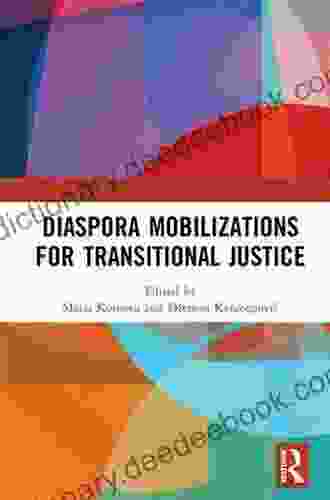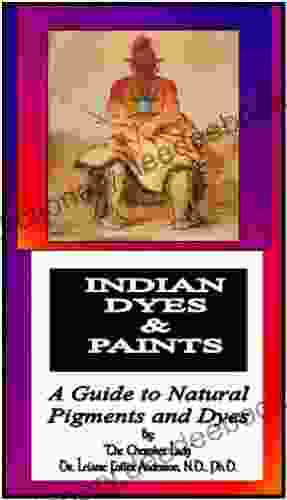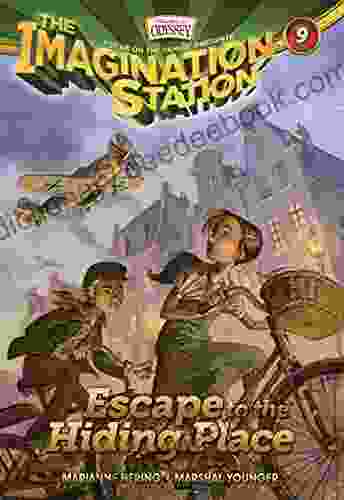Diaspora Mobilizations for Transitional Justice: Ethnic and Racial Studies

Diaspora communities have played a significant role in mobilizing for transitional justice, the process of addressing past human rights violations and promoting reconciliation. This article explores the role of diaspora communities in three cases of transitional justice: Argentina, Guatemala, and South Africa. In each case, the diaspora community played a vital role in raising awareness of the human rights violations, advocating for justice, and supporting the victims and their families.
5 out of 5
| Language | : | English |
| File size | : | 2244 KB |
| Text-to-Speech | : | Enabled |
| Screen Reader | : | Supported |
| Enhanced typesetting | : | Enabled |
| Word Wise | : | Enabled |
| Print length | : | 180 pages |
Argentina
The Argentine diaspora played a key role in the mobilization for transitional justice after the military dictatorship that ruled the country from 1976 to 1983. The dictatorship was responsible for the deaths of an estimated 30,000 people, as well as the torture and imprisonment of thousands more.
After the dictatorship ended, the Argentine diaspora in Europe and North America began to organize and campaign for justice. They formed groups such as the Argentine Human Rights Assembly and the Mothers of the Plaza de Mayo, which lobbied for the prosecution of those responsible for the human rights violations. The diaspora also provided financial support to human rights organizations in Argentina and organized protests and demonstrations to raise awareness of the issue.
The Argentine diaspora's efforts played a vital role in the eventual success of the transitional justice process in Argentina. In 1985, the Argentine government passed a law that allowed for the prosecution of those responsible for the human rights violations. Since then, hundreds of former military officers have been convicted of crimes against humanity.
Guatemala
The Guatemalan diaspora also played a key role in the mobilization for transitional justice after the country's long civil war, which lasted from 1960 to 1996. The war was marked by widespread human rights violations, including the deaths of an estimated 200,000 people, the vast majority of whom were indigenous Mayans.
After the war ended, the Guatemalan diaspora in the United States and Canada began to organize and campaign for justice. They formed groups such as the Guatemalan Human Rights Commission and the Network in Solidarity with the People of Guatemala, which lobbied for the prosecution of those responsible for the human rights violations. The diaspora also provided financial support to human rights organizations in Guatemala and organized protests and demonstrations to raise awareness of the issue.
The Guatemalan diaspora's efforts played a vital role in the eventual success of the transitional justice process in Guatemala. In 1999, the Guatemalan government signed a peace agreement that included a provision for the creation of a truth commission. The truth commission, which was supported by the United Nations, investigated the human rights violations that occurred during the war and published a report in 1999 that found that the Guatemalan government was responsible for the majority of the violence.
In 2003, the Guatemalan government passed a law that allowed for the prosecution of those responsible for the human rights violations. Since then, a number of former military officers have been convicted of crimes against humanity.
South Africa
The South African diaspora also played a key role in the mobilization for transitional justice after the end of apartheid. Apartheid was a system of racial segregation that was in place in South Africa from 1948 to 1994. Under apartheid, black South Africans were denied basic rights, including the right to vote, the right to education, and the right to own land.
After the end of apartheid, the South African diaspora in Europe and North America began to organize and campaign for justice. They formed groups such as the African National Congress and the South African Communist Party, which lobbied for the prosecution of those responsible for the human rights violations that occurred during apartheid. The diaspora also provided financial support to human rights organizations in South Africa and organized protests and demonstrations to raise awareness of the issue.
The South African diaspora's efforts played a vital role in the eventual success of the transitional justice process in South Africa. In 1994, the South African government passed a law that allowed for the prosecution of those responsible for the human rights violations that occurred during apartheid. Since then, a number of former apartheid-era officials have been convicted of crimes against humanity.
The diaspora communities in Argentina, Guatemala, and South Africa played a vital role in the mobilization for transitional justice in their respective countries. The diaspora communities raised awareness of the human rights violations that had occurred, advocated for justice, and supported the victims and their families. The diaspora communities' efforts played a key role in the eventual success of the transitional justice processes in these countries.
5 out of 5
| Language | : | English |
| File size | : | 2244 KB |
| Text-to-Speech | : | Enabled |
| Screen Reader | : | Supported |
| Enhanced typesetting | : | Enabled |
| Word Wise | : | Enabled |
| Print length | : | 180 pages |
Do you want to contribute by writing guest posts on this blog?
Please contact us and send us a resume of previous articles that you have written.
 Book
Book Novel
Novel Page
Page Text
Text Story
Story Library
Library Paperback
Paperback Magazine
Magazine Newspaper
Newspaper Paragraph
Paragraph Sentence
Sentence Bookmark
Bookmark Shelf
Shelf Bibliography
Bibliography Foreword
Foreword Preface
Preface Synopsis
Synopsis Footnote
Footnote Manuscript
Manuscript Scroll
Scroll Codex
Codex Tome
Tome Biography
Biography Autobiography
Autobiography Memoir
Memoir Encyclopedia
Encyclopedia Thesaurus
Thesaurus Character
Character Librarian
Librarian Card Catalog
Card Catalog Periodicals
Periodicals Research
Research Scholarly
Scholarly Academic
Academic Reading Room
Reading Room Rare Books
Rare Books Literacy
Literacy Study Group
Study Group Thesis
Thesis Theory
Theory Sinclair Lewis
Sinclair Lewis Caroline Graham
Caroline Graham Steve Turner
Steve Turner William Stallings
William Stallings Shivakumara Palaiahnakote
Shivakumara Palaiahnakote Ravindra Nayak
Ravindra Nayak Marsha Shearer
Marsha Shearer Egils Petersons
Egils Petersons Barbara Randle
Barbara Randle Megan Giddings
Megan Giddings Walter R Brooks
Walter R Brooks Rosetta E Ross
Rosetta E Ross Julia Karr
Julia Karr Anthony James
Anthony James Charles Rivers
Charles Rivers Luanne Rice
Luanne Rice Scott Bushkie
Scott Bushkie Eboni Snoe
Eboni Snoe Claudy Conn
Claudy Conn Ben Chappell
Ben Chappell
Light bulbAdvertise smarter! Our strategic ad space ensures maximum exposure. Reserve your spot today!
 Yukio MishimaFollow ·9.1k
Yukio MishimaFollow ·9.1k Gary ReedFollow ·2.3k
Gary ReedFollow ·2.3k Franklin BellFollow ·6.8k
Franklin BellFollow ·6.8k Ray BlairFollow ·15.3k
Ray BlairFollow ·15.3k Beau CarterFollow ·12.8k
Beau CarterFollow ·12.8k Gabriel HayesFollow ·9.9k
Gabriel HayesFollow ·9.9k Ian MitchellFollow ·11.2k
Ian MitchellFollow ·11.2k Arthur MasonFollow ·18.6k
Arthur MasonFollow ·18.6k

 Jerome Powell
Jerome PowellBarbara Randle: More Crazy Quilting With Attitude -...
A Trailblazing Pioneer in...

 Jan Mitchell
Jan MitchellLapax: A Dystopian Novel by Juan Villalba Explores the...
In the realm of dystopian literature, Juan...

 Rodney Parker
Rodney ParkerOur Mr. Wrenn: The Romantic Adventures of a Gentle Man
Our Mr. Wrenn is a 1937 novel...
5 out of 5
| Language | : | English |
| File size | : | 2244 KB |
| Text-to-Speech | : | Enabled |
| Screen Reader | : | Supported |
| Enhanced typesetting | : | Enabled |
| Word Wise | : | Enabled |
| Print length | : | 180 pages |


















